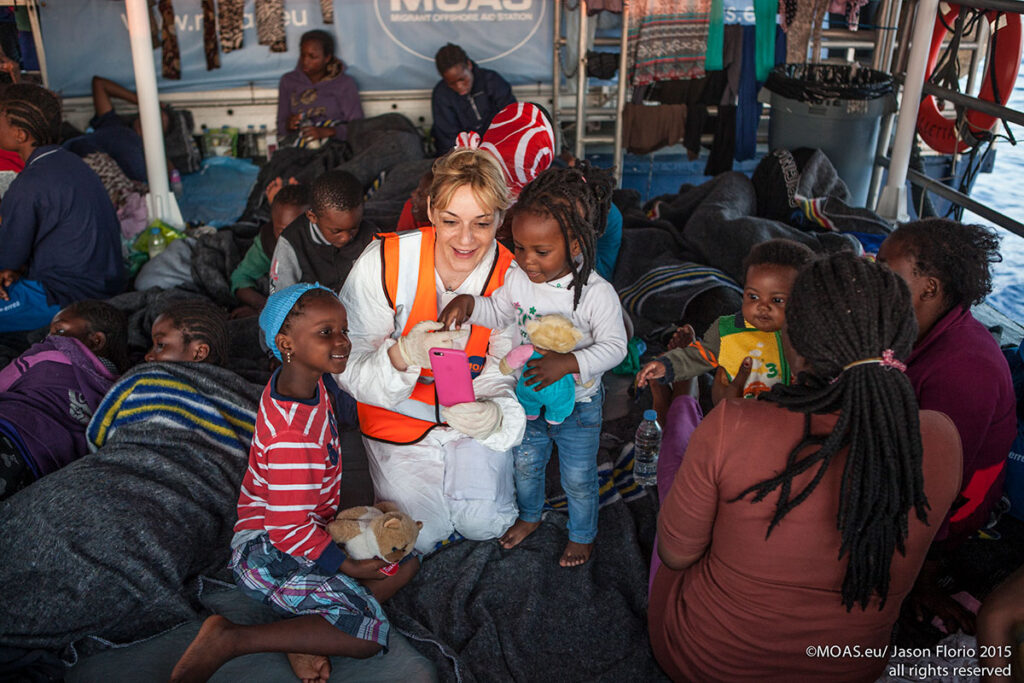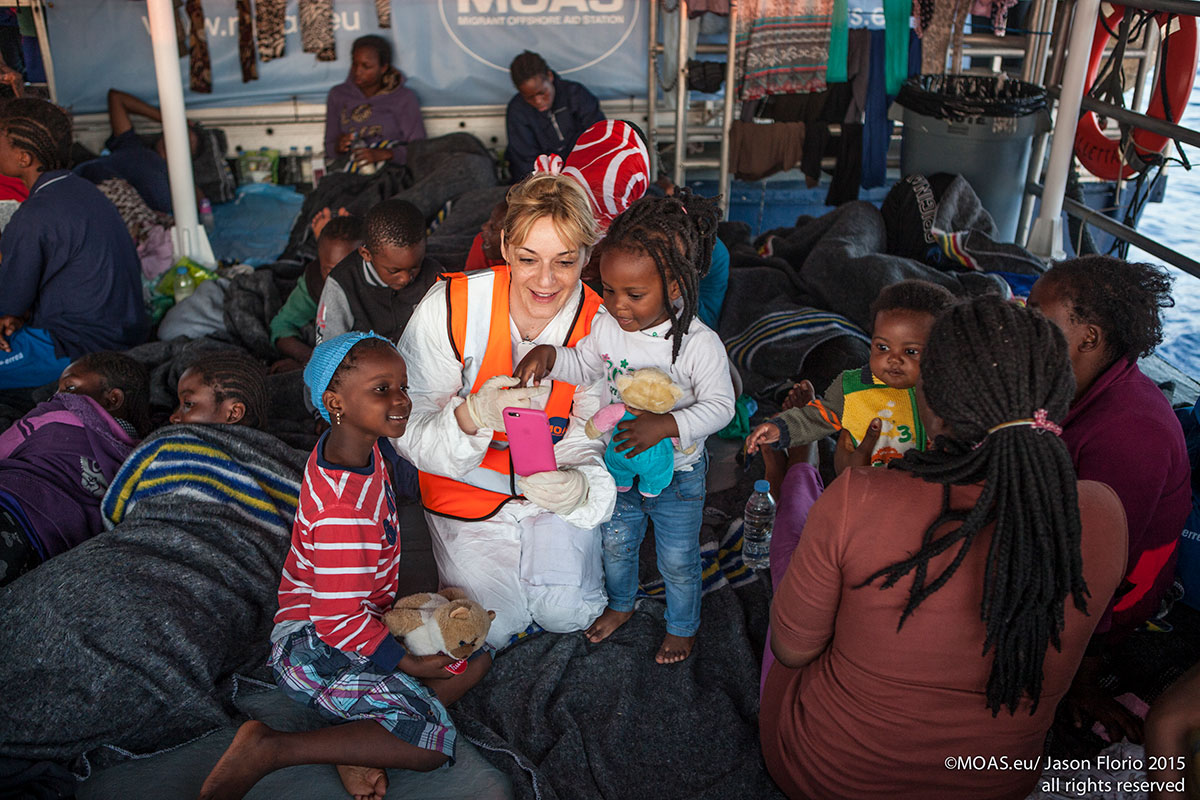“Fundamentally, poverty is a denial of choices and opportunities, a violation of human dignity. It means lack of basic capacity to participate effectively in society. It means not having enough to feed and clothe a family, not having a school or clinic to go to, not having the land on which to grow one’s food or a job to earn one’s living, not having access to credit. It means insecurity, powerlessness and exclusion of individuals, households and communities. It means susceptibility to violence, and it often implies living on marginal or fragile environments, without access to clean water or sanitation”
(UN Statement, June 1998 – signed by the heads of all UN agencies)
Migration is part of human history and has occurred throughout the centuries.
Apart from war, conflict and persecution, a triggering factor for migration is poverty. Poverty may be as lethal as a weapon when it comes to denying people livelihoods and preventing them from accessing basic healthcare services or education.
Poverty is a controversial notion and it is hard to find a shared definition, but there is a general agreement about the negative consequences it has on society, especially when it affects the most vulnerable communities.
In my view, there is a connection between external and internal poverty. External poverty can be seen as a lack of economic funds and resources which is deeply linked to internal poverty. By internal poverty, I refer to people who are forced to survive day by day and have no chance to go to school, to improve their skills and to pursue their dreams. When official authorities cannot respond effectively to this lack of opportunities and economic stagnation, people look to migration as a chance to improve their life because -as good entrepreneurs do- they believe in the power of their dreams.
In 2015, Philippe Douste-Blazy a UN Undersecretary-General, explained that economic inequality was driving people from their home countries just as steadily as war. In light of this, the only way to break this negative cycle is to act as soon as possible in order to eradicate poverty-generating factors – or at least to mitigate them.
Building walls and fences, as well as pushing people back to their homelands, is no solution.
Poverty implies scarcity of food and sanitation and includes a lack of opportunity to access education and the labour market. For this reason, it is no surprise that people are unable to improve their living conditions and find themselves forced to leave their homes. Often they do not want to do this, but when a family has no capacity to cover basic expenses for their children, there are few choices left.
Such a denial of choices and opportunities can happen despite the best efforts and intentions of states. However, in some countries, government policies can actively contribute to internal and external poverty, forcing people to leave their homes.
A clear example of this phenomenon is Eritrea. There, citizens are forced into open-ended conscription and are subjected to many human rights abuses, meaning that they are made to experience both internal and external poverty. As a result, many people are fleeing Eritrea, trying to escape the abuses and poverty imposed by one of the most secretive dictatorships in the world. Often, this migration further exposes them to violence and abuses during the journey and in some welcoming countries.
Poverty and Conscription in Eritrea
Eritreans make up a large amount of migrants crossing the Mediterranean and seeking asylum in Europe, comprising a higher ratio than Syrians forced to flee the ongoing civil war.
In 2015, a report issued by the UN stated that “It is not law that rules Eritreans – but fear”.
The Eritrean government is described as a totalitarian state preventing people from having a normal life: people are constantly monitored through a large apparatus penetrating all levels of society and are exposed to gross human rights violations. Moreover, “the enjoyment of rights and freedoms are severely curtailed in an overall context of a total lack of rule of law”.
One of the main issues is forced military conscription. Conscription involves everyone in Eritrea and is indefinite. Conscripts often experience forced labour and violence (even sexual violence) which may be considered a crime against humanity.
Over the years I have had the chance to exchange views and opinions on this topic with Dr. Alganesc Fessaha, Founder and Director of Gandhi Charity. We have discussed how politics and conscription affect the Eritrean economy while forcing people to flee and avoid violence, abuse and extreme poverty.
She explained the connection between conscription and poverty in Eritrea, and described the negative consequences of using almost all the labour force for military purposes or to fulfill the needs of those in power. This leads to slavery-like conditions and corruption that worsens a fragile economic environment. “Forced labour in this context is a practice similar to slavery in its effects and, as such, is prohibited under international human rights law”, the UN report explains.
People have no chance to express their talent and improve their skills. They are constantly oppressed and are forced to work on specific projects that are aimed at satisfying the personal needs of military commanders and officials rather than the general community. They have no choices or control over their lives, and are unable to support themselves or their families. The only option they have is to leave the country.
Dr. Fessaha participated in our latest XChange Forum 2017 and gave a detailed overview of what happens to Eritreans fleeing their homeland with no safe and legal means at their disposal. The awful reality for them is a chain of abuse, torture and violence which sometimes ends with their death. Eritreans are often detained as illegal migrants and kidnapped for ransom after crossing the borders. If no ransom is available, they may be beaten to death or used for organ transplantation.
We believe that in countries affected by poverty, long-term solutions are based on open dialogue, by investing in local economies, and improving living conditions. In countries like Eritrea, where governments actively create external and internal poverty among their citizens, we must advocate for governments to respect human dignity – as set out in the UN declaration – and allow their citizens to have choices and control over their lives. Only in this way can we prevent poverty and avoid these lethal journeys.
Please sign up to our newsletter at the bottom of this page for all the MOAS news and updates and support our rescue missions by giving whatever you can to help us save lives at sea.


